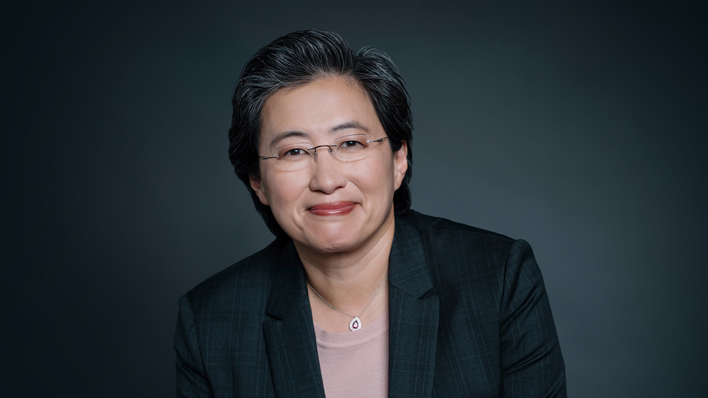AMD CEO Dr. Lisa Su Discusses NVIDIA Rivalry, AI Strategy And More In Expansive Interview
Wired has interviewed Dr. Su and collected her thoughts on various topics like the company's role in the ongoing trade war, its competition with NVIDIA, and of course, AI. Starting off, Su feels that being embroiled in the trade shenanigans isn't really added pressure, but is definitely an increased responsibility. She states that AI progress is going to march on regardless of whether AMD supplies chips or not. In fact, she points out that there are several vendors out there and AMD being left out would be a bad idea not just for the company, but for the U.S. as well.
On that note, Su "absolutely, 100%" believes that bringing chip manufacturing back to the U.S. is vital, positing that it's a vital part of national security and economic interests. Su does admit that the higher price is a barrier, but that a change of mentality is required. Indeed, in our view, the HPC and AI markets are both more ravenous for supply and much less price-sensitive than laptops or desktops, so being able to manufacture those chips in the U.S. at some point could prove quite successful.

The constant comparison to NVIDIA is a well-beaten horse by now, though Su doesn't mind the comparison; rather, it's the question of "when will AMD catch up" that she believes less relevant than the press would think. She illustrates that point by stating that there aren't one-size-fits-all solutions for most anything in computing, and that there's enough markets for everyone for now. In our opinion, steady evolution is probably the best modus operandi for the time being, as back in 2014 nobody would conceivably think that AMD would go from a $2B to a $300B market cap in just ten years.
Additionally, Su takes pride that AMD is already the primary partner for CPUs for the likes of OpenAI, Meta, and Google, and that ROCm and its AI accelerators will continue making strides. The perceived superiority of NVIDIA's CUDA software ecosystem is often pinpointed as one of the major reasons for sticking with Jensen Huang's wares. Su, however, thinks that ROCm isn't really inferior, and the fact that CUDA has been around longer to accumulate more associated libraries and custom software—in other words, plain inertia—is the main sticking point. She notes that AMD is "hiring like crazy" for this space, as well.
A particularly interesting point is that Su apparently always believed that inference, rather than training, would eventually be more important. Her thoughts seem to have panned out, as AMD's AI accelerators have high memory capacity and other characteristics that help inference. Her personal views on AI in general are quite bullish, and thinks that the technology is particularly important for healthcare.
Regardless of your views on AI, NVIDIA, or AMD itself, the interview is definitely worth a read if you're interested in the broader trajectory of the industry.

